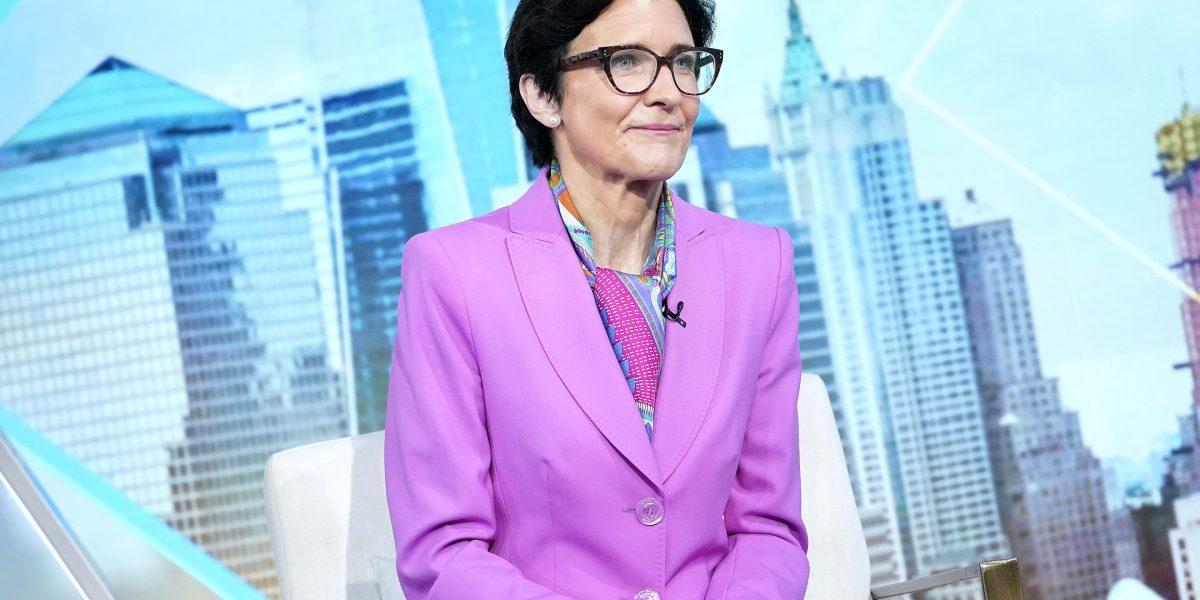Citi Mandates AI Prompt Training for 175,000 Employees, Signaling a New Era in Banking
2 Sources
2 Sources
[1]
Citi begins retraining all 175,000 employees in working with AI: 'great prompting versus basic prompting to generate impactful results' | Fortune
Citi is starting a new AI training program aimed at teaching hundreds of thousands of employees how to write better prompts to feed the bank's generative AI programs. In an internal memo shared with American Banker, Tim Ryan, Citi's head of technology and business enablement, and Anand Selva, the bank's chief operating officer, spotlighted the need for well-written prompts and introduced a mandatory AI training for the majority of its workforce. The memo was sent to 175,000 employees in 80 locations, American Banker reported on Tuesday. The global bank had around 229,000 employees as of the fourth quarter of last year. A Citi representative told Fortune confirmed that the training is meant to improve AI prompting among its workforce. "This training is about teaching our colleagues the possibilities of great prompting versus basic prompting to generate impactful results," Peter Fox, head of learning at Citi, told Fortune. The module uses an adaptive learning platform that tailors the training based on an employee's knowledge level, he added. "Experts can complete it in under 10 minutes, while beginners take about 30 minutes." Citi reported widespread employee engagement with AI technology in the memo, saying so far this year, employees have entered more than 6.5 million prompts in its built-in tools. "Just as the right question in a client pitch can reveal clarity and create advantage, a well-crafted prompt can accelerate your work, surface insights and amplify your impact," Ryan and Selva said in the company memo, according to American Banker. Experts tell Fortune the democratization of AI skills among workers is a major cultural shift in banking and other white-collar industries. "People may wonder if they will become expendable," Christina Muller, workplace mental health expert and consultant at R3 Continuum, a national HR and workplace behavioral health agency, told Fortune. "Training is crucial to reinforce that AI is meant to be a co-pilot -- not a replacement -- on an already flying plane." Citi's training announcement comes a week after Accenture CEO Jule Sweet said her company was exiting employees unable to reskill with the new tech. Similarly, Walmart CEO Doug McMillon recently said AI would affect "virtually every job" at the global retailer. Citi's widescale adoption of AI is "turning work that once took hours into tasks done in minutes," the internal memo said. "The scale isn't just impressive; it marks the beginning of a new way of working." Mandating AI training is a useful starting point, but by itself, it won't create meaningful results in the financial industry, Gary Lamach, SVP of strategy and growth at ELB Learning, a company that provides businesses with software professional services, told Fortune. "Too many organizations are treating AI as a box to check, launching a tool or rolling out a one-time training, and calling it transformation," Lamach added. "That's when implementation fails." Citi's mandatory AI prompt training is part of a "continuous upskilling process we're offering all employees," Citi's Fox said. The company is offering additional training for employees to learn more about AI in general. Many of Citi's competitors have already been banking on AI training investments. JPMorgan has made AI training a mandatory part of onboarding for all new employees since 2024, including prompt engineering and AI tool literacy. Bank of America reported in April more than 90% of its 213,000-strong global workforce leverages AI tools in daily work, driven by both voluntary and required training modules across departments. And Wells Fargo trained 4,000 employees in Stanford's Human-Centered AI program. In early 2024,Wells Fargo CIO Chintan Mehta said the company's virtual assistant app, Fargo, had handled 20 million interactions since its launch in March 2023, adding that the AI application could have the potential to handle 100 million or more per year as the technology develops. But Lamach said the technologies are as good as the people that steer them. Continued investment in people is what separates businesses with AI implementation on a checklist and companies that will guide their employees in the new reality of work, he added. "The future of finance will not be defined by the tools themselves, but by the leaders who empower their people to use them with purpose," Lamach said.
[2]
Citi Is Requiring AI Prompt Training for Hundreds of Thousands of Employees
The memo said the company's AI turns "work that once took hours into tasks done in minutes." Citi is rolling out an AI training program for its 175,000 employees. The training teaches personnel how to work with the bank's internal AI programs and write prompts that enable efficiency. Citi sent an internal memo, which was viewed by American Banker, to its entire workforce in all 80 locations, that said AI is "turning work that once took hours into tasks done in minutes" and that incorporating the tools "marks the beginning of a new way of working." Related: LinkedIn's CEO Says He Uses AI to Write 'Almost Every Email,' Including to His Boss, the Head of Microsoft On LinkedIn, Tim Ryan, head of technology and business enablement at Citi, wrote that the "training is a practical guide to mastering a key skill for the future and unlocking the full potential of AI. "Just as the right question in a client pitch can reveal clarity and create advantage, a well-crafted prompt can accelerate your work, surface insights and amplify your impact," the memo said, per American Banker. A Citi representative told Fortune the training is about "teaching our colleagues the possibilities of great prompting versus basic prompting to generate impactful results." Citi said that employees have entered more than 6.5 million prompts in its built-in tools so far this year, according to the memo. Related: 'No Longer Optional': Microsoft Staff Mandated to Use AI at Work, According to a New Report Meanwhile, banks are going all in on AI. This week, CNBC reported that JPMorgan revealed its AI program that can create an investment banking deck in 30 seconds. AI training at the bank has been a part of mandatory onboarding training for at least a year. Fortune notes that Wells Fargo sent 4,000 employees to Stanford's Human-Centered AI program.
Share
Share
Copy Link
Citi launches a mandatory AI training program for its global workforce, focusing on improving prompt writing skills for internal AI tools. This move highlights the growing importance of AI literacy in the financial sector and the broader trend of workforce reskilling in the face of technological advancements.

Citi's Ambitious AI Training Initiative
Citi, one of the world's largest banks, has launched a mandatory AI training program for its global workforce of 175,000 employees across 80 locations. The initiative, announced in an internal memo, focuses on teaching employees how to write better prompts for the bank's generative AI programs
1
. This move underscores the growing importance of AI literacy in the financial sector and highlights Citi's commitment to integrating AI into its daily operations.The Importance of 'Great Prompting'
Peter Fox, head of learning at Citi, emphasized that the training is designed to teach employees "the possibilities of great prompting versus basic prompting to generate impactful results"
1
. The program uses an adaptive learning platform that tailors the training based on an employee's knowledge level, allowing experts to complete it in under 10 minutes while beginners may take about 30 minutes.Widespread AI Adoption at Citi
The internal memo revealed that Citi employees have already entered more than 6.5 million prompts into the bank's built-in AI tools this year
2
. This high level of engagement demonstrates the rapid adoption of AI technology within the organization. Tim Ryan, Citi's head of technology and business enablement, and Anand Selva, the bank's chief operating officer, stated that AI is "turning work that once took hours into tasks done in minutes"1
.Industry-wide Trend in AI Training
Citi's initiative is part of a broader trend in the financial industry. Other major banks have also invested heavily in AI training:
- JPMorgan has made AI training, including prompt engineering, mandatory for all new employees since 2024
1
. - Bank of America reported that over 90% of its 213,000 global employees use AI tools in their daily work
1
. - Wells Fargo trained 4,000 employees in Stanford's Human-Centered AI program
2
.
Related Stories
Implications for the Future of Work
Experts suggest that this widespread adoption of AI training represents a significant cultural shift in banking and other white-collar industries. Christina Muller, a workplace mental health expert, emphasized the importance of framing AI as a "co-pilot" rather than a replacement for human workers
1
.Challenges and Considerations
While mandatory AI training is a crucial first step, some experts caution that it alone may not be sufficient for meaningful transformation. Gary Lamach, SVP of strategy and growth at ELB Learning, warned against treating AI implementation as a "box to check" and stressed the need for continuous upskilling and purposeful use of AI tools
1
.As the financial industry continues to evolve with AI integration, Citi's ambitious training program sets a precedent for how large corporations can prepare their workforce for the future of AI-assisted work.
References
Summarized by
Navi
Related Stories
Citigroup Launches AI Tools to Boost Employee Productivity in Eight Countries
05 Dec 2024•Business and Economy

Citigroup Launches AI Tools for Hong Kong Employees, Plans Global Expansion
22 May 2025•Business and Economy

Wells Fargo CEO announces AI will drive job cuts as bank pursues efficiency gains
09 Dec 2025•Business and Economy

Recent Highlights
1
Samsung unveils Galaxy S26 lineup with Privacy Display tech and expanded AI capabilities
Technology

2
Anthropic refuses Pentagon's ultimatum over AI use in mass surveillance and autonomous weapons
Policy and Regulation

3
AI models deploy nuclear weapons in 95% of war games, raising alarm over military use
Science and Research





